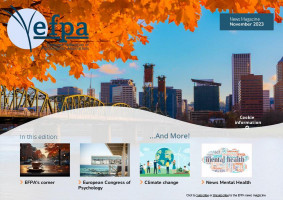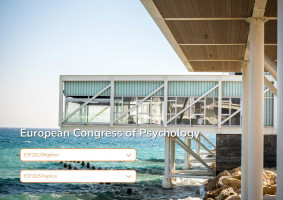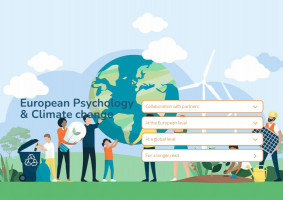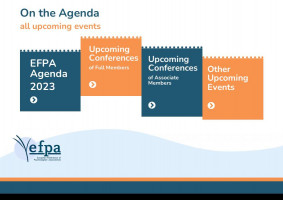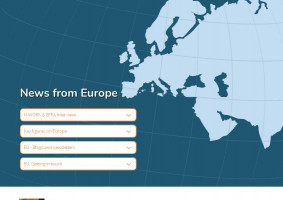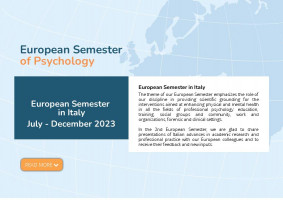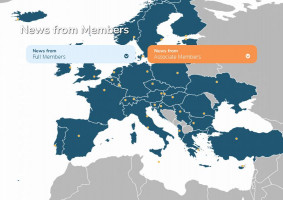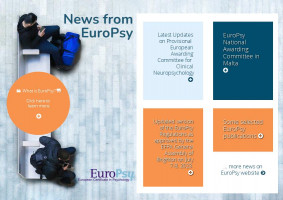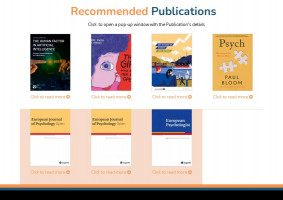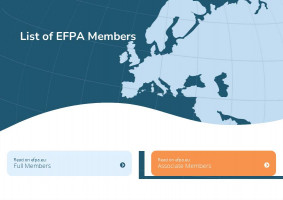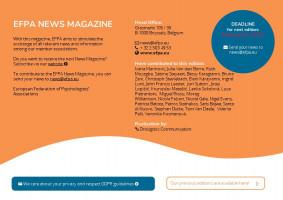News from
Full Members
News from
Associate Members
_w366_h274_1.png)
Croatia
Seventy years of the Croatian Psychological Association. October, 2023
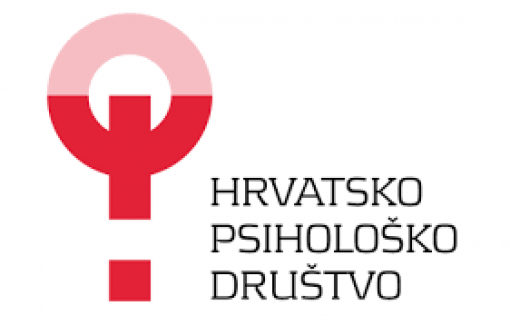
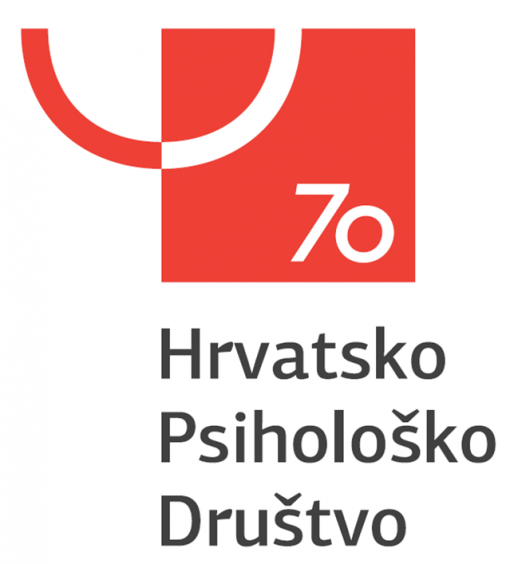
The first chair of psychology was established at the Faculty of Humansitic and Social Sciences in Zagreb in 1929. The Croatian Psychological Association (CPA) was established on 14th March 1953 by 32 psychologists.
The first president was Rudi Supek, PhD, a postgraduate student of Jean Piaget. Seventy years later, the Croatian Psychological Chamber (CPK) has 3668 members. The founders of the Chamber in 2003 were the Croatian Psychological Association and the Ministry of Social Welfare.The CPA still acts as a voluntary citizens association, while the Chamber is obligatory for all practicing psychologists.
The CPA has been a member of EFPA since 1998, with delegates in various EFPA bodies. We have participated in all three EFPA surveys on the views of psychologists about tests and testing. The CPA has about 20 sections, organizes the annual psychological conference with 600 to 800 participants.
The association also grants awards to deserving members and prominent psychologists, with the awards carrying the names of Ramiro Bujas (1879-1959), the founder of experimental psychology in Croatia, Zoran Bujas (1910-2004) as the most prominent Croatian psychologist and Marko Marulić (Marcus Marulis, Spalatensis( (1450- 1524), a renaissance genius who coined the term “psychology” in 1517.
A symposium dedicated to the history of psychology will be organized at this year’s conference. It will include the history of the CPA with an announced thirty contributions which will be presented in three blocks: “prehistory” from 1517 and Marko Marulić to the founding of the first Laboratory of experimental psychology in Zagreb in 1920, followed by the presentation of six psychology programmes. The final block will include concise presentations of the history of applied fields, i.e., educational, industrial/organizational and clinical psychology.
Krunoslav Matešić and Josip Lopižić
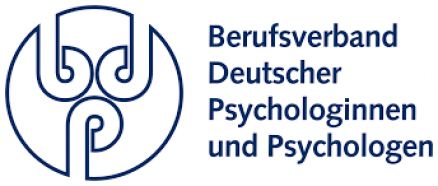
Germany
German Psychology Award 2023 goes to Prof. Dr. Ulrich Wagner, former convenor of EFPA Board of Human Rights & Psychology . October, 2023
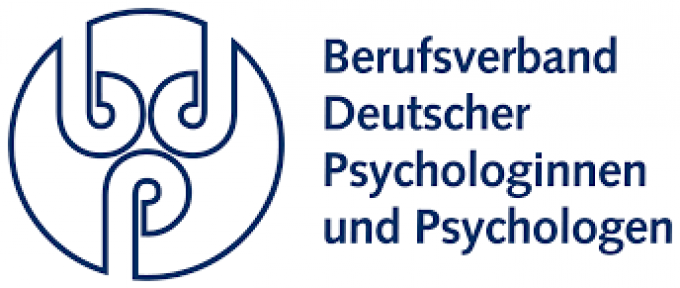
Source: https://www.bdp-verband.de/presse/pressemitteilungen/detailansicht/interkulturelle-kompetenz-und-gegenseitige-akzeptanz-als-schluessel-fuer-erfolgreiche-integration-und-gegen-fremdenfeindlichkeit
Berlin, 19 October 2023: For his outstanding achievements and long-standing commitment in the field of migration research and violence prevention, Prof. Dr. Ulrich Wagner will be awarded the German Psychology Prize 2023 at a ceremony in Berlin on 26 October. With this award, the awarding committee honour his work as a social psychologist and scientific director of the science-practice project "Einsicht - Marburg gegen Gewalt".

Prof. Dr. Wagner has played a decisive role in shaping the scientific, social and political discourse on the topic of migration and integration and continues to provide impetus for political decision-making processes today. In various socio-psychological studies on the acceptance of refugees in the course of the waves of refugees, he was able to show that "contact at eye level between people of different origins and cultures leads to greater intercultural competence and stronger mutual acceptance". The social psychologist anchored the contact theory as an effective psychological mechanism for improving intergroup relations in the public sphere.
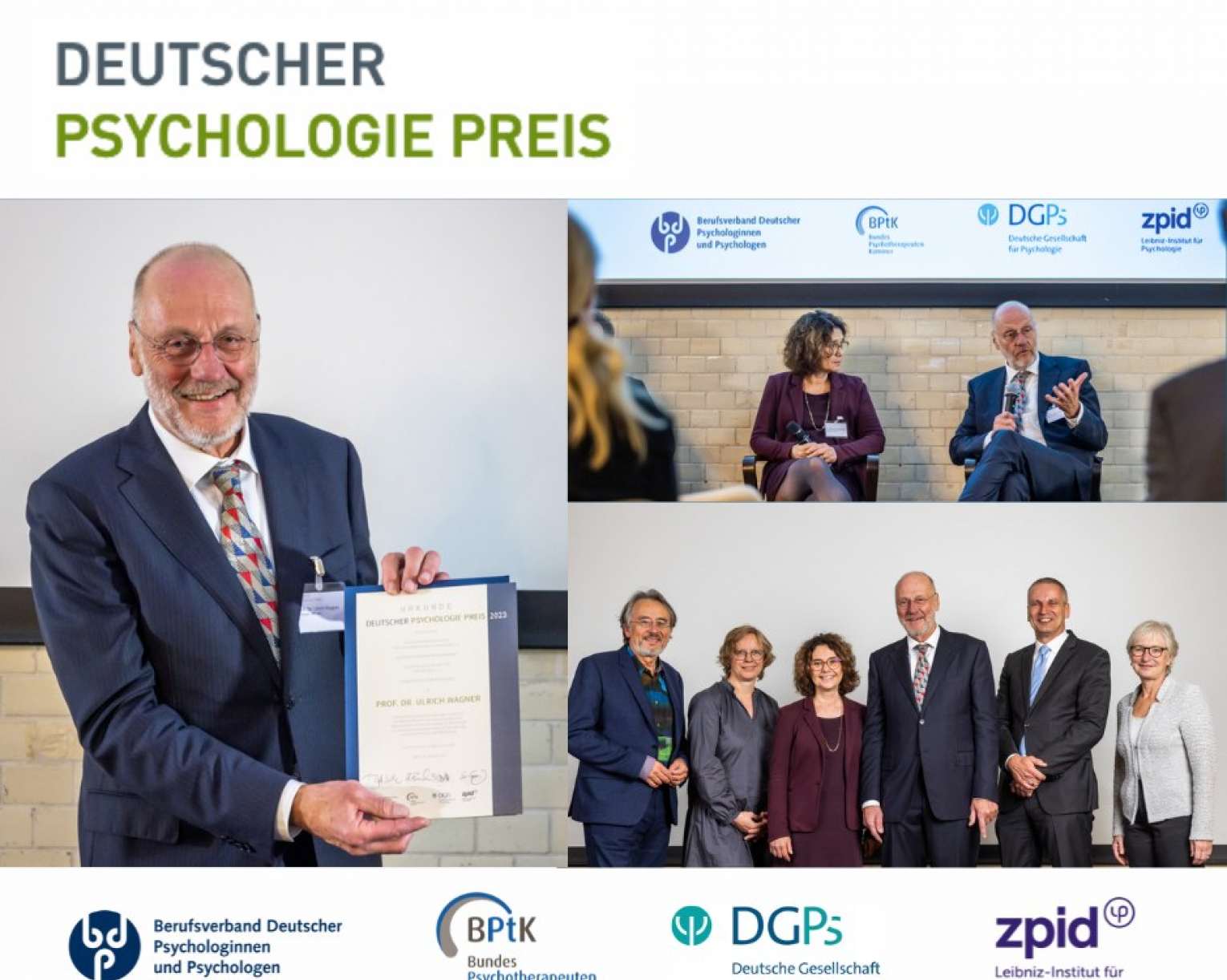

Malta
A YMCA Malta representative at PREVEX Project Dissemination Conference about empowering youth advocates in sex education. October, 2023

In an event that aimed to shed light on the challenges surrounding sex education, Nicola Falzon, a board member of the EFPA Board of Educational Affairs, had the privilege of attending the PREVEX Dissemination Conference on the 18th of October 2023 representing YMCA Malta. This gathering showcased critical research and discussions on a wide range of pressing issues, sparking a call for action and change in the field.
The delegate was deeply impressed by the relevance and urgency of the topics covered during the conference. Startling statistics were presented that highlighted the gravity of certain issues. One alarming revelation was that over 85% of childhood sexual abuse cases are the result of child-on-child violence. Additionally, it was disclosed that men are increasingly creating artificial intelligence (AI) companions and subjecting them to verbal abuse, indicating a disturbing trend in the digital world.
One prevalent topic that took center stage during the conference was sexual violence, especially in the context of dating apps. Shockingly, a significant number of digital sexual abuse incidents go unreported, primarily due to the platforms through which they occur, such as dating apps and social media. This allows online harassers to operate with impunity, disregarding the well-being of their victims. The need for enhanced sex education emerged as a critical tool for both empowering individuals to take action and preventing such behaviors in the first place.
PREVEX, the project underpinning this informative conference, has provided an invaluable resource for those working with youth. The initiative offers a platform with free, user-friendly sex education resources covering various essential topics. These resources are accessible to anyone in mental health, prevention, social work, youth work, education, and more. Rather than reinventing the wheel, projects like PREVEX make it possible to tap into existing tools and resources.
The conference highlighted the urgency of addressing the challenges in sex education and underlined the importance of working collectively to bring about positive change. As professionals and advocates in various fields, it is essential to harness resources and unite in the common goal of creating a safer and more informed environment for today's youth. The delegate highlights how together, we can make a difference.

_w292_h324_1.jpg)
Portugal
-
FLAD/OPP Mental Health in Higher Education Award presented to four institutions. October, 2023
-
10 Proposals to the Government for Better Mental Health in Portugal, October, 2023
-
Impact of Mental Health on Physical Health, October, 2023
-
Portuguese Psychologists Association and APA Sign Memorandum for Mutual Collaboration in Digital Transition. September, 2023
_w510_h564_1.jpg)
-
FLAD/OPP Mental Health in Higher Education Award presented to four institutions.
-
10 Proposals to the Government for Better Mental Health in Portugal.
-
Impact of Mental Health on Physical Health.
-
Portuguese Psychologists Association and APA Sign Memorandum for Mutual Collaboration in Digital Transition.
FLAD/OPP Mental Health in Higher Education Award presented to four institutions
October 17, 2023
The Luso-American Development Foundation and the Portuguese Psychologists Association have awarded a prize to four projects from higher education institutions. A total of 105,000 euros will be distributed among the selected projects. The winners are WELL.Be: Mental Health and Well-Being Promotion in Higher Education (University of Maia), the MAIS - UÉ: Active Mind and Socioemotional Intelligence in Higher Education project (University of Évora), the Escola com REDE – Promoting Mental Health at ESS-P.Porto (School of Health, Polytechnic Institute of Porto), and the “Nós e os laços” - Mental Health Promotion in Higher Education project (Piaget Institute of Almada)."
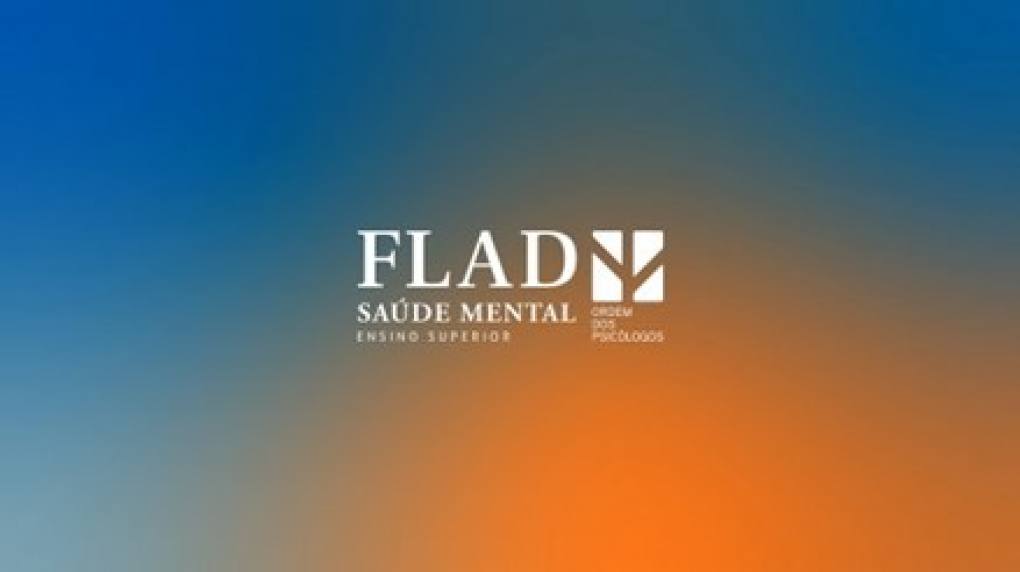
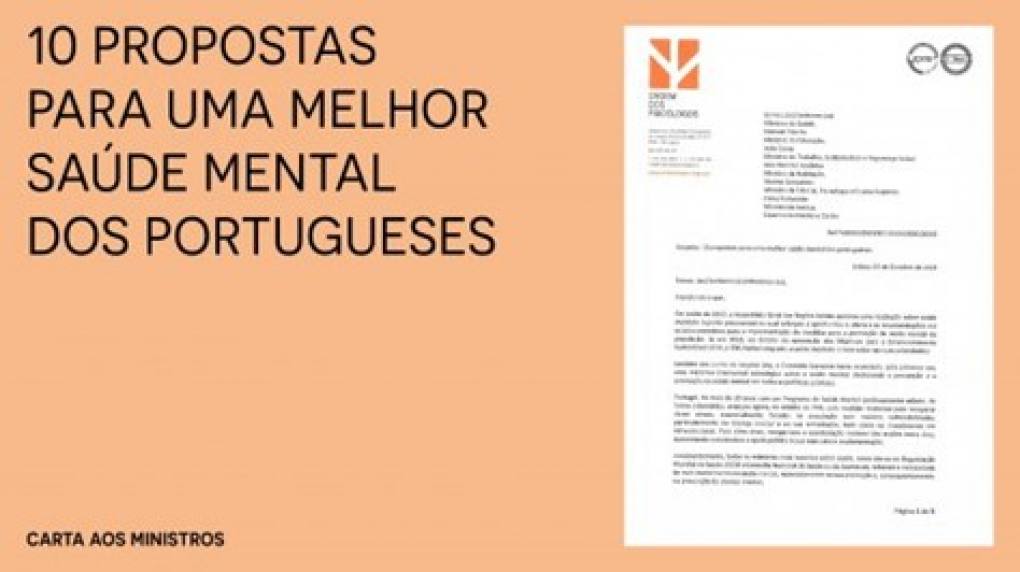
The President of the Portuguese Psychologists Association sent a letter to six portuguese ministers with 10 proposals to improve the Portuguese population’s mental health. This was one of the initiatives on World Mental Health Day, celebrated on October 10th. ·
- Revitalize society's involvement through the reform of national and regional Mental Health Councils.
- Establish a national mental health and well-being observatory.
- Set a target percentage of Gross Domestic Product (GDP) for investment in mental health.
- Create an investment plan for human resources in the National Health Service (NHS).
- Ensure the permanent presence of psychologists in schools.
- Implement recommended changes by the Directorate-General of Health regarding the composition of occupational health teams, including psychologists.
- Fulfill the commitments made in the 2023 State Budget to provide conditions for the effective hiring of psychologists by Higher Education Institutions.
- Review the actual model of intervention programs based on scientific evidence.
- Increase the available resources and expedite the achievement of the goal to eliminate homelessness through social reintegration.
- Strengthen mental health services and support in primary care.
Impact of Mental Health on Physical Health
October 10, 2023
On World Mental Health Day, the Portuguese Psychologists Association shares a scientific contribution on the Impact of Mental Health on Physical Health: Economic Costs and Cost-Effective Psychological Interventions. People with depression have up to 36% higher risk of developing coronary heart disease, and depression, stress, and life dissatisfaction can increase the risk of suffering a stroke by 39%. On World Mental Health Day, the Portuguese Psychologists Association released a document highlighting the impact that mental health has on physical health..

The Portuguese Psychologists Association signed a memorandum for mutual collaboration in digital transition with the American Psychological Association (APA). This took place during the event 'The Human Factor in Digital Transition,' marking the National Psychologist Day, at the São Bento da Vitória Monastery in the city of Porto.
The Human Factor in Artificial Intelligence: Strategic Recommendations for Sustainability
September 4, 2023
A new document from the Portuguese Psychologists Association highlights the key challenges, risks, and benefits of Artificial Intelligence and provides strategic recommendations for the future. The document offers a psychological perspective on Artificial Intelligence and emphasizes the importance of integrating psychology into this process. It can help predict behaviors, optimize processes, and identify potential risks and vulnerabilities.


_w434_h244_1.png)
Spain
The necessary inclusion of Psychology in Public Policies. July, 2023
_w680_h384_1.png)
The necessary inclusion of Psychology in public policies
July 19, 2023
We are currently in a situation of saturation of mental health services, with massive referral protocols, excessive medicalization from primary care and the collapse of specialized psychological care.
The perspective of inclusion of Psychology in public policies , proposes to detect and attend to psychological discomfort promptly and accessible to risk situations, offering minimum guarantee conditions for the integral development of children and adolescents.
These are some of the conclusions that emerge from a report published by the Official College of Psychology of the Region of Murcia , through which it is intended to make visible the current situation in relation to mental health and child and adolescent psychological well-being in the Region. This document is the result of the intervention in the Regional Assembly - at the request of the Special Commission for Children and Adolescents -, by the dean of the COP Murcia, María Fuster , serving its support content throughout said intervention before the Parliamentary Groups.
_w292_h290_1.png)
Ukraine
Valeriia Palii, President of the National Psychological Association of Ukraine, at the World For Ukraine Foundation (W4UA) Summit. September, 2023
_w340_h338_1.png)
Valeriia Palii, President of the National Psychological Association of Ukraine, at the World For Ukraine Foundation (W4UA) Summit
September 28-29, 2023. Rzeszów-Jasionka, Poland
Reproduced with autorisation.
Originally published on LinkedIn
I spent these days together with like-minded people. National Association was a partner of W4UA. This year we were responsible for mental health topics. It is very important that this issue is being discussed more and more, the talks were interesting, the speakers were incredible.
I had the opportunity to be a participant in a panel on challenges for the mental health of the elderly, to moderate a panel on the mental well-being of children and school education. And also take part in the final panel on the reconstruction and rebuilding of Ukraine.
One more good news, NPA received an award from the Summit for our work and contribution, and also found many new friends. But, probably, the most valuable thing for me was to see and hug my colleagues, whom I have not seen for a long time. By Valeriia Palii President National Psychological Association of Ukraine
By Valeriia Palii
President National Psychological Association of Ukraine
About the W4UA
The World For Ukraine Foundation is looking to inspire collaboration and advocate for support of Ukraine and Ukrainians during and after the war. W4UA Foundation is on a mission to raise awareness of key humanitarian and economic issues amongst different stakeholders. With expertise in event organization and the creation of cyclical reports, the foundation believes that bringing together different parties from humanitarian, governmental, and corporate sectors is necessary to mobilize, strengthen, and inspire effective collaborations. The World For Ukraine Summit is organised in G2A Arena (Rzeszów-Jasionka, Poland) on an annual basis.
_w1360_h628_1.png)
_w366_h238_1.png)
United Kingdom
Introducing the 2023 BPS journals’ Landmark Issue on Inequality. July, 2023
_w510_h332_1.png)
Introducing the 2023 BPS journals’ Landmark Issue on inequality
July 28, 2023
Orginally published on BPS news
The Landmark Issue is an opportunity for our journals to unite in their focus on one common theme of importance to society or the psychological discipline as a whole. Each year, one paper is selected or commissioned by each editor from all of the BPS’s portfolio of journals to comprise a very special, collaborative multi-journal themed issue.
For 2023, the BPS Editorial Advisory Group chose to commission specially invited papers on the topic of inequality, noting that it can take many forms. Katherine Berry, chair of the BPS Editorial Advisory Group, says in the editorial:
“We believe that psychological science has the potential to develop understanding of inequality and therefore instigate change in thinking and practice towards embracing different influences and reducing the unequal opportunities that people face.”
With published papers from all 11 BPS journals, topics range in coverage from engagement with services in Black African and Caribbean people with psychosis, to children’s developing understanding of economic inequality, to workplace gender inequality – and more.
Thanks to our editors for their passion and engagement with the annual Landmark Issue, and to our authors and reviewers for their valuable contributions in enabling such high quality work to reach publication. We hope you enjoy reading the 2023 Landmark Issue –
_w394_h134_1.png)
EFPSA- European Federation of Psychology Students' Associations
- Past events and activities
- Upcoming events and activities
- Projects and upcoming news
_w850_h288_1.png)
_w388_h388_1.png)
EFPSA has been involved in the European Mental Escape project for the past two years and finished in spring. The project was officially introduced during the Mental Escape Dissemination Conference. The event was hosted hybrid on the 10th of July in Leuven, Belgium. During the day, participants were able to enjoy engaging demo escape rooms and attend various lectures and workshops delivered by professionals. It provided the opportunity to gain insight into the science that gave rise to the escape rooms, actually test the escape rooms through demo sessions and to network with professionals.
We are happy that the Trainers´ Meetings are coming back after a few years. The event was hosted from the 4th until 7th of August close by Berlin in Germany. 27 soft-skills trainers joined to enhance their skills and network with trainers from different Train the Trainers generations as well as other NGOs. This year, TRAM focused on the training topic connected to the theme ´Evolution of Trainings: Throughout the ages, training changes.´
Train the Trainers is an event where 16 students learn about non-formal education, how to prepare, deliver and facilitate training sessions, and they can become soft-skills EFPSA Trainers. This year, participants met in August in Turkey. Some recent graduates have already delivered a few training sessions since then.
The Board of EFPSA met for the first time in person for their Board Meeting in September. They discussed legal documents, changes, new practices and important issues for the Federation. The team started preparing for the internal working event Joint EB&MR Meeting. It is always the time to also bond together as a team thanks to feedback sessions, social and teambuilding activities.
Joint EB&MR Meeting is a statutory event for the Working Community members when they come together in the middle of the EFPSA mandate to evaluate the first six months and prepare for the second half of the term. This year, we just met together in the middle of October in Norway. Besides the General Assembly, we reflected on the sustainability and future of EFPSA and other important topics. Each team introduced their activities in the mandate so far and worked on the new initiatives. Participants received teambuilding, soft-skill training and workshops. Last but not least, we welcomed Ole Tunold who presented the Norwegian Psychological Association (NPF).
_w1190_h648_1.jpg)
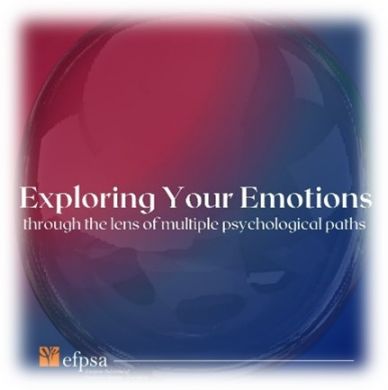
Our 38th Congress will take place in Greek Volos from the 22nd until the 28th of April. We are excited to welcome around 230 people coming to the event to discuss the theme “Exploring your emotions.” The main focus will turn to the question how we can interpret our emotions through different fields of psychology. Congress is also an important moment for EFPSA when the new Board is elected and a new mandate starts.
We are pleased that our representatives participated in professionals´ events such as ECP, APA Convention in the U.S., Insight and Plexus Conferences, events hosted by European institutions. At the ECP, we established collaboration with APA. EFPSA also finished her 1,5 mandate of chairing EHSAA (European Healthcare Students’ Associations' Alliance) at the EHSAA Meet Up in Brussels in September when this collaborative network also changed its name to Alliance. Finally, the team organised a panel discussion on the World Mental Health Day when we could hear input from Christoph Steinebach as one of the panellists together with the representatives of IAAP, APA, PsySSA and EFPSA.
Research Programme restructured their activities this mandate and instead of a one-year supervised programme for a selected group of students, they organised webinar series on research-oriented topics. Marketing team created many new promo materials, we opened new waves of the Social Impact Initiatives campaigns and established two Task Force teams on organisational sustainability and green initiative,

EFPTA - European Federation of Psychology Teachers' Associatons
Update about EFPTA

Update about EFPTA by Lenka Sokolová (Slovakia) and Morag Williamson (Scotland)
EFPTA is a federation of national and regional associations of psychology teachers in schools and colleges in European countries. Members are mainly involved in teaching psychology at lower and upper secondary levels, with school students aged 13-19 years. EFPTA was established in 2004 and since 2009 has been affiliated with EFPA.
In 2022 and 2023, EFPTA organized two webinars aimed to promote highly relevant topics of mental health education and climate change among psychology teachers in Europe. Sadly, the global covid-19 pandemic since early 2020 has led to an increase in mental health problems, especially among young people. This webinar formed part of a project by EFPTA and the EFPA Board of Educational Affairs on mental health education in secondary schools in Europe, including the role of psychology teachers in supporting students' mental health. Concerns about the effects of the climate crisis on the wellbeing of young people and the need to prepare them for future challenges will continue. A number of important fundamental questions arose about the role of psychology education in promoting mental health in schools and addressing the climate crisis, so we plan to follow up these themes in future EFPTA events.
After the COVID break, the EFPTA board is meeting in person again. The spring 2023 meeting of EFPTA Board took place for the first time in Stockholm, hosted by Swedish representative Ebba Christina Blåvarg. The weekend in mid-May was blessed with glorious sunny, warm weather. EFPTA Board members are looking forward to the autumn 2023 meeting, which will take place on 17th-18th November in Edinburgh. Thanks go to Mairi Rice and Simon Robinson for hosting the meeting at their schools.
Much of the discussion of our meetings is focused on organising the 2024 conference to be held in Helsinki on 18-21 April, 2024. The conference theme will be "The Age of Psychology: Teaching Psychology in the Modern World". This event will be significant for several reasons: Helsinki is the location where EFPTA was established, prompted by Joe Cocker of the Association for the Teaching of Psychology (UK), who brought together psychology teachers from three countries. And that initial meeting took place in 2004, so the next year’s conference will mark our 20th anniversary. We hope that as many psychology teachers as possible will take part. Provisional programme is available on EFPTA website and the registration is open.
EFPTA board members also actively present EFPTA at a variety of international events and conferences. In 2023, Ebba Christina Blåvarg (Sweden) and Kateřina Machovcová (Czechia) attended the European Conference on Educational Research in Glasgow. Lenka Sokolová (Slovakia) took part in a symposium on science communication organised by EFPA´s Board of Educational Affairs at the European Congress of Psychology in Brighton, and presented a workshop on the teaching of psychology in Europe at the Australian Psychology Learning and Teaching 2023 hybrid conference.
If you would like more info about EFPTA, please see the website: www.efpta.org
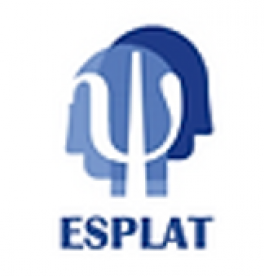
ESPLAT - European Society of Psychology Learning and Teaching
ESPLAT Biennal Conference 2023: “How can we adapt our teaching of psychology to this changing world? “

The European Society of Psychology Learning and Teaching (ESPLAT) Biennal Conference 2023:
“How can we adapt our teaching of psychology to this changing world? “
Stephan Dutke - ESPLAT Conference organiser
This was a key sentence in the call for papers for the Biennial ESPLAT Conference 2023. The European Society of Psychology Learning and Teaching (ESPLAT) is a European academic organisation whose aim is to advance the learning and teaching of psychology at all educational levels, and to provide a forum to engage researchers and teachers of psychology in communication and exchange.
Whereas the ESPLAT 2021 Conference was oriented towards the specific challenges of teaching psychology under the specific conditions of the COVID19 pandemic (and therefore was held online), this year’s ESPLAT Conference was dedicated to sustainability issues.
It was midsummer in Umeå (some hundreds of kilometers north of Stockholm) and the participants enjoyed sunny days with only a few hours of darkness in the thriving university town and experienced a perfectly organized conference full of openness and affectionate cooperation.
What challenges do we need to consider in our roles as psychology teachers, and how can we best prepare students for a sustainable future? Four distinguished keynote speakers presented their views on the relationship between teaching psychology and sustainability. Annika Nordlund (University of Umeå) encouraged psychology educators to consider how psychology can be taught in a way that supports the UNESCO’s Sustainable Development Goals and inspired the audience with numerous examples. Thérese Skoog (University of Gothenburg) identified students’ mental health as a central challenge in psychology higher education. Robert J. Sternberg (Cornell University) advocated for considering broader concepts like wisdom, curiosity, and inquisitiveness (beyond intelligence) as learning goals and development tasks in psychology education. Finally, Kelley Haynes-Mendez (Human Rights Team at APA) focused equity and justice as an important facet of psychological sustainability.
These and many more scientific and practical aspects of teaching and learning psychology were discussed in up to four parallel sessions over three days: evidence-based and case-based teaching methods, student motivation, stress and self-esteem, experiences from interactive and online learning, inclusion, student loneliness and sustainability, self-awareness in psychologists’ training – just to name some prominent topics.
Interested to learn more about ESPLAT and the ESPLAT Conferences? Please visit
Soon, a special issue of Psychology Learning and Teaching will present a selection of contributions to the conference 2023. And for those who would like to become part of the ESPLAT community: The next ESPLAT Conference will take place in September 1-3, 2025 in Münster (Germany) and all who are engaged in advancing psychology teaching and learning are cordially invited!







